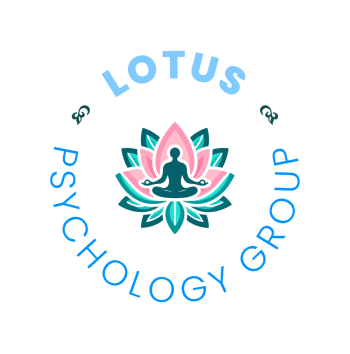At Lotus Psychology Group, many of our therapy professionals have advanced training and experience working with individuals who are struggling with eating disorders. Depending on the individual’s needs and experiences, we may recommend specific approaches to therapy. In this blog, we’ll discuss the two most commonly used forms of therapy for eating disorders, cognitive behavioral therapy and dialectical behavior therapy. However, it’s important to note that each person is unique, and our therapists will develop a personalized plan to help the individual achieve their goals in addressing disordered eating.
Cognitive Behavioral Therapy
Cognitive behavioral therapy (CBT) is a common approach to counseling that may be utilized to improve the adverse symptoms of numerous mood and cognitive disorders, including harmful eating patterns. An enhanced version of CBT called CBT-e was developed to address eating disorders and other diagnosis, specifically CBT-e has proven beneficial in addressing binge eating disorder and bulimia nervosa. The goals of CBT-e are to help individuals recognize and change harmful beliefs, manage emotional response, and change disordered eating habits.
Dialectical Behavior Therapy
Dialectical behavior therapy (DBT) is a type of individual and/or group therapy that may be recommended for disordered eating. It is based on building skills that help individuals increase tolerance of distress, manage emotions, center oneself in the present through mindfulness exercises, and interact with others in healthier and more beneficial ways. This can be a great strategy for disordered eating as the skill developed through DBT can be quickly and easily applied in a range of situations related to disordered eating to increase the individual’s safety and stability.
The Continuum of Care for Disordered Eating
A therapist plays an important role in the continuum of care for disordered eating by supporting the individual to make positive changes to the underlying thoughts and
emotions that triggered harmful eating behaviors. However, we also recognize that disordered eating impacts other parts of a person’s life, and it may be important for those who are struggling with eating disorders to work with other professionals in conjunction with seeking therapy or to achieve greater stability to ensure safety before
scheduling therapy sessions. Some of the additional resources that can benefit someone with disordered eating include:
- Residential treatment – staying in a short or long-term facility that provides round-the-clock care for those with acute eating disorders.
- Medical intervention – this may include emergency medical care for extreme low
weight, mental health struggles, suicidal ideation, or other concerns. Medication management and work with a medical doctor to ensure maintenance of good overall health are also recommended. In addition, those who have purging disorders that involve vomiting should work with a dentist to prevent and repair any cavities or enamel erosion. - Nutrition counseling – to improve relationships with food and work toward healthier eating habits, those with disordered eating habits may work with a nutrition counselor who can teach meal planning and other helpful nutritional strategies.
Talk to Our Team
Whether you’re struggling with disordered eating or seeking support for a loved one who is working to address unhealthy eating behaviors, the Lotus Psychology Group team is here to help. We understand how difficult it is to heal from eating disorders for good, and our knowledgeable therapists have advanced training and experience helping people with disordered eating habits challenge unhelpful thinking, regulate emotions related to food, and make positive behavioral changes. To get started working with Lotus Psychology Group, call our team at (248) 957-8973, email: info@lotuspsychgroup.com, or complete our contact form.

